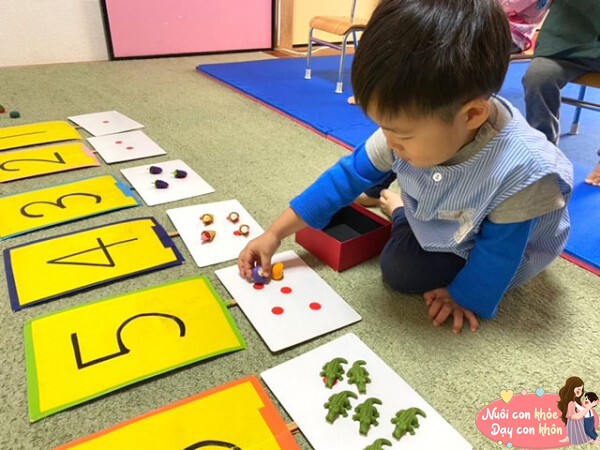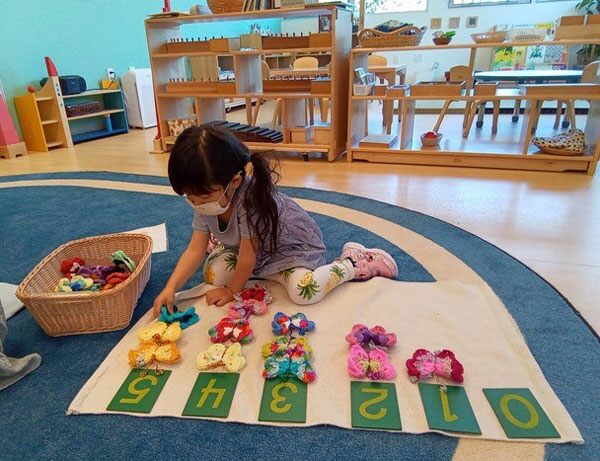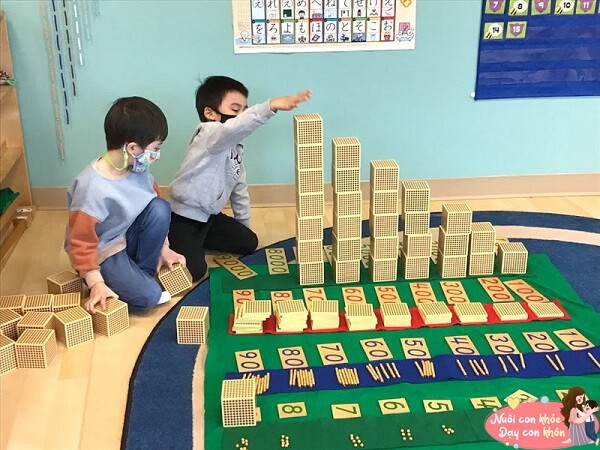In the past, many people thought that mathematical enlightenment was about teaching children how to count. If a child could count from 1 to 100, they would be praised by their parents. However, in reality, mathematics in life is not just about counting. Especially after children enter primary school, mathematics today is not only about calculation skills and the ability to solve serious questions but also requires critical thinking and a flexible brain.
Therefore, it’s never too late to start inspiring mathematical thinking in children from the ages of 2 to 6. Experts suggest that parents can apply some methods to encourage this.

What is Mathematical Thinking?
When faced with a problem, children can apply mathematical knowledge to think and find a solution.
For example, what is the sum of the numbers from 1 to 100?
The conventional method is to add each number one by one, but this is very time-consuming and prone to errors.
1+2+3+4+……+96+97+98+99+100=?
However, by using mathematical thinking, one can identify the pattern in the sequence and solve the problem quickly using relatively simple methods.

Mathematical thinking involves identifying relationships between numbers and applying mathematical knowledge to find solutions.
The first step in developing mathematical thinking in children is to expose them to various mathematical skills such as comparison, classification, graphing, spatial reasoning, and sequencing. As children acquire these skills, their brains will start to connect the dots and form a network of mathematical understanding through continuous practice and reflection.
Additionally, encouraging children to engage in mathematical games, puzzles, and group activities is essential. These activities help children apply their knowledge, develop communication and teamwork skills, and understand how mathematics can be applied in real-life contexts.
Building confidence in mathematical thinking will open up numerous opportunities for children in the future, enabling them to become creative and efficient problem solvers.

What Mathematical Knowledge Should Parents Teach Their Children?
Ages 2-3
At this age, children are first taught to count sequentially and then gradually understand the meaning and relationships between numbers and quantities.
Here are some popular methods that parents can use:
– Count the steps when going up or down the stairs with your child.
– Let your child help with retrieving items at home or in the supermarket and count those items together.
– Play a finger-counting game. For example, use your 10 fingers to represent the numbers from 1 to 10. You can also hold up a random number of fingers, and your child can tell you the total.

Children at this age are typically taught to count sequentially.
Ages 3-4
During this phase, children mainly focus on counting, shape recognition, and more challenging counting tasks.
Help your child count larger numbers (up to 100) sequentially. Then, introduce the concept of skip-counting by counting in intervals of 10 and 20 (odd and even numbers, multiples, etc.).
Play counting games, such as counting from 1 to 16 and then asking your child to identify the next number. You can also play a shape-building game, where you build a tower and ask your child to arrange objects in a specific order.
Ages 4-5
At this stage, children can be introduced to mathematical concepts such as comparison, classification, sequencing, and patterns.
For instance, teach them to compare quantities by asking, “Which is more, three apples or two bananas?” or “How many more apples are there than bananas?” You can also explore patterns, such as in the sequence 12312312312, and ask your child to identify the next number. Other games can involve concepts like length, height, size comparisons, and clothing sorting.

Children at this age can grasp mathematical concepts like comparison, classification, sequencing, and patterns.
Ages 5-6
At this age, children can start developing their spatial reasoning skills. Encourage them to draw maps of their routes, such as from home to kindergarten or during outdoor walks. They can also draw floor plans of their homes or kindergarten classrooms.
Engage in more complex construction play, such as with Lego or clay, and introduce puzzles. When playing with your child, incorporate mathematical concepts from their surroundings. You can also purchase thinking games or puzzle books to keep them engaged when they have free time.
Let your children know that mathematics is not just about numbers; it’s a powerful tool that can help them solve problems and navigate their daily lives.





































